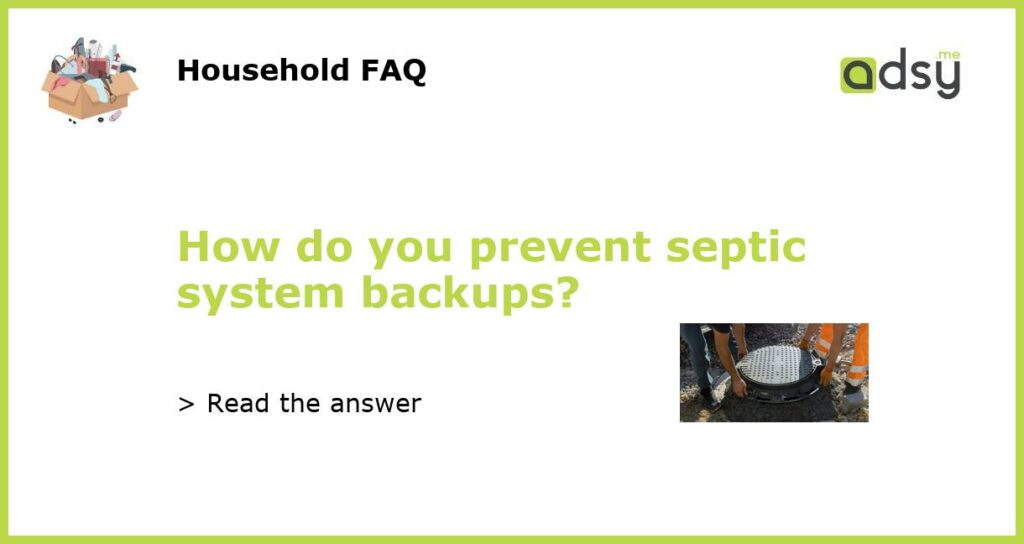Regularly Pump and Maintain Your Septic System
One of the most effective ways to prevent septic system backups is to regularly pump and maintain your septic system. Septic systems should be pumped every 3 to 5 years, depending on the size of your system and the number of people in your household. Regular pumping helps remove the buildup of solids in the septic tank, reducing the risk of backups. It is important to hire a professional septic system service provider to pump your tank and ensure that it is properly maintained.
Be Mindful of What You Flush and Drain
Another important step in preventing septic system backups is to be mindful of what you flush and drain. Your septic system is designed to handle human waste and wastewater from sinks, showers, and laundry. However, it is not designed to handle items such as baby wipes, feminine hygiene products, oil, grease, or chemicals. These items can clog your septic system and cause backups. Make sure to dispose of these items properly in the trash or take them to a hazardous waste facility.
Conserve Water to Reduce the Strain on Your Septic System
Conserving water can also help prevent septic system backups. When you use excessive amounts of water, it can overwhelm your septic system and lead to backups. To conserve water, consider installing low-flow fixtures, fixing any leaks, and spreading out water usage throughout the day. Also, avoid doing multiple loads of laundry or running the dishwasher while taking a shower. By reducing the amount of water going into your septic system, you can help prevent backups.
Avoid Planting Trees and Shrubs Near Your Septic System
Planting trees and shrubs near your septic system can cause damage to the underground pipes and drain field. The roots of these plants can grow into the pipes, causing blockages and backups. To prevent this from happening, avoid planting large trees with invasive root systems near your septic system. If you already have trees or shrubs planted near your system, make sure to regularly trim the roots and branches to minimize the risk of damage.
Monitor and Address Drainage Issues on Your Property
Lastly, monitoring and addressing any drainage issues on your property can help prevent septic system backups. If water is not properly draining away from your septic system, it can become saturated, leading to backups. Make sure that your downspouts are directed away from the septic system and ensure that your property has proper grading to allow water to flow away from the system. If you notice any standing water or soggy areas near your septic system, it is recommended to consult with a professional to address the drainage issue.

